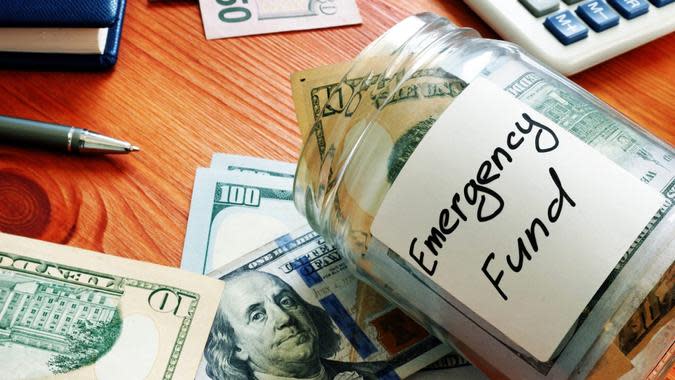8 Signs You Can Afford To Retire

Leaving the working world behind can be an exciting but daunting prospect. Even if you have all your financial ducks in a row, you may find yourself doubting if you're actually prepared to enter this new phase in life.
Zelle Facebook Marketplace Scam: How To Recognize and Avoid This Scam
See Our List: 100 Most Influential Money Experts
While there are no guarantees, there are some clear signs that you're financially ready to retire. If these ring true to you, you're probably in a good place to enjoy your post-work life.

You 'Know Your Numbers'
"It is critical to know your current numbers (pre-retirement lifestyle needs) as well as what your retirement lifestyle needs may be in the future," said Peter Casciotta, owner of Asset Management & Advisory Services of Lee County in Cape Coral, Florida. "It is imperative you conduct a full audit of your income, expenses, assets and liabilities."
Once you know how much you'll need, you have a clear roadmap to know when you're financially ready to retire.
Take Our Poll: Are You Struggling To Keep Up With Your Utility Bills?

You've Saved Enough To Cover 30+ Years of Living Expenses
"If a client has accumulated enough assets to sustain a 30-plus year retirement, [that's a sign they're ready to retire]," said Pamela Sams, financial advisor at Jackson Sams Wealth Strategies.

You Have a Plan That Will Allow You To Maintain Your Lifestyle
In addition to having enough saved, you should also have an allocation plan that will allow you to maintain the lifestyle you want throughout your retirement years.
"If someone determines they need $3 million in order to live 30 years in retirement with a certain lifestyle and they have that amount saved, then they have to ensure that their savings and/or investments are allocated in a way that can help satisfy the retirement goals in the long-term -- i.e. income, growth, legacy, etc.," said Marianne Rodriguez, CFP, director and wealth advisor at Round Table Wealth Management.

You've Paid Off Your Debts
Having most, if not all of your debt paid off is a good sign you're ready to retire, said Jazmin Williams, a financial advisor with Equitable.
"You want to carry as little debt into retirement as possible," she said. "Your working years are the times where you have the ability to pay off and pay down debt."

You Have a Plan To Pay For Your Healthcare
Knowing how you will pay for healthcare and long-term care is an important step to take before retiring.
"Reflect and assess where your current health stands and if you foresee any potential health challenges in the future," Williams said. "You'll want to take that into account when setting aside funds for any future medical expenses or long-term care expenses."
Knowing how you'll cover any medical costs that come up is a sign you're ready to take the next step.

You've Rebalanced Your Portfolio for Your New Goals
"Prior to retirement, investment assets were most likely aligned towards growth, but going forward, once you retire, assets need to be aligned to satisfy the need for income and preservation of capital," Round Table Wealth Management's Rodriguez said. "Growth is still needed, but it moves down the list of portfolio priorities."

You Have 3 to 6 Months of Living Expenses in Cash
In addition to your investment accounts, it's important to have cash on hand to cover emergency expenses.
"They should have three to six months' worth of non-discretionary expenses saved in an easily accessible account," Rodriguez said. "Be mindful that some people, given their particular circumstances -- a health condition, a family situation, etc. -- might need more than six months' worth of expenses set aside."

You Have All the Appropriate Insurance
In addition to insurance for immediate and long-term healthcare needs, you should also have insurance for your home, vehicle, liability, life, etc., Rodriguez said.
"Ensure insurable risks are properly covered to prevent an irreparable loss that could have been otherwise insured," she said. "[This will] prevent an unnecessary loss of retirement assets."
More From GOBankingRates
This article originally appeared on GOBankingRates.com: 8 Signs You Can Afford To Retire

 generic
generic 